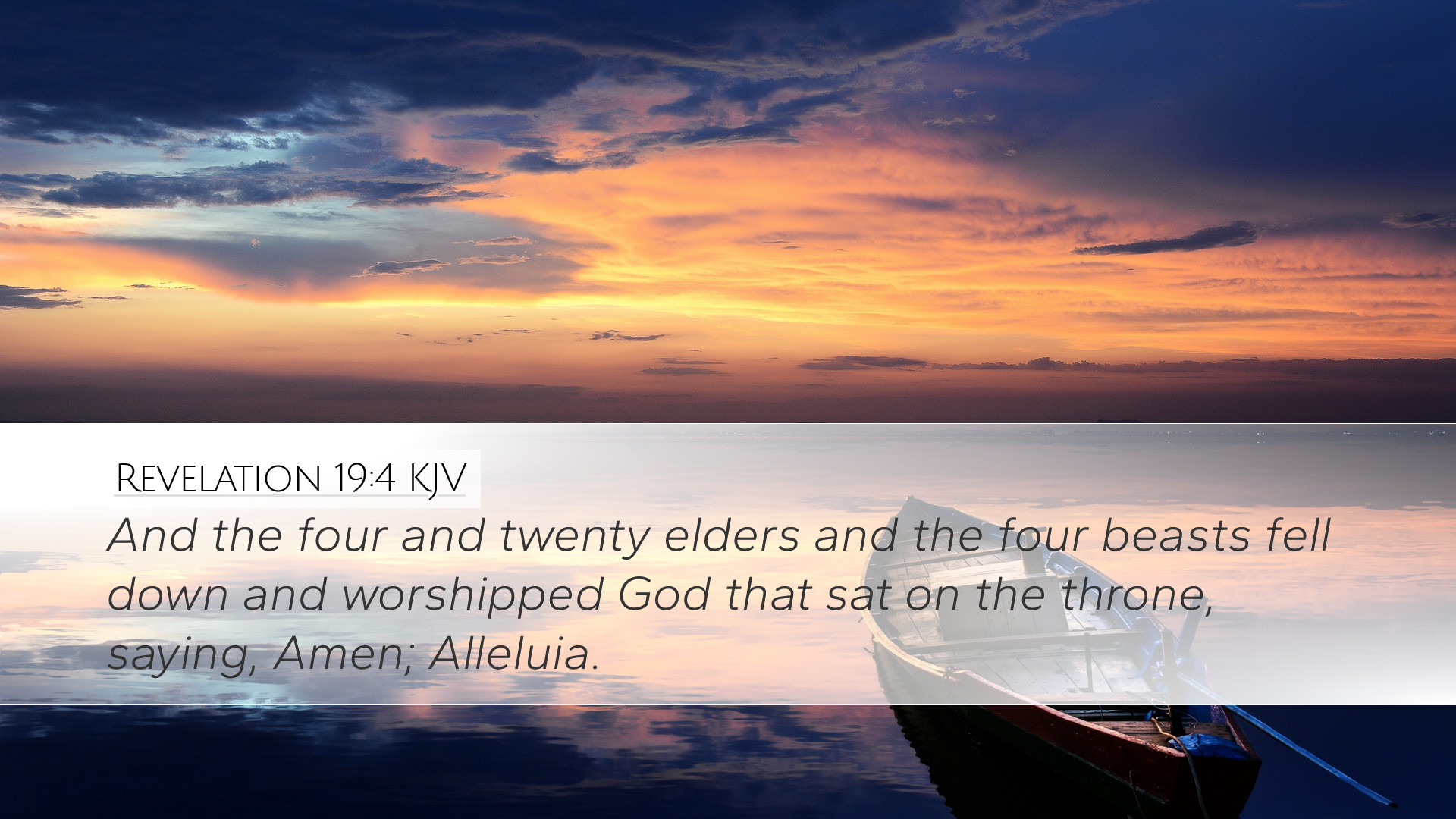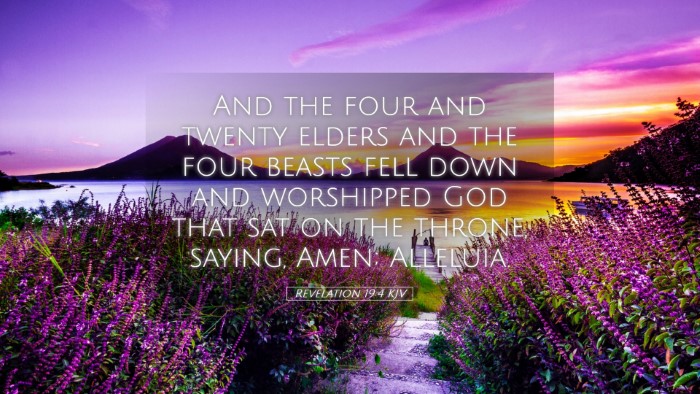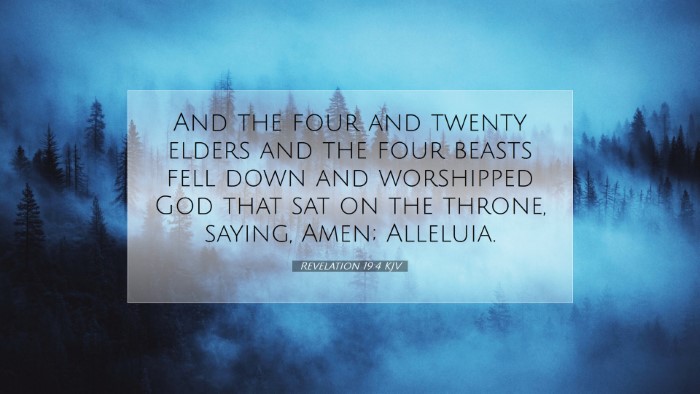Commentary on Revelation 19:4
Text of Revelation 19:4 (KJV): "And the four and twenty elders and the four beasts fell down and worshipped God that sat on the throne, saying, Amen; Alleluia."
Introduction
The book of Revelation stands as a profound culmination of the biblical narrative, revealing the ultimate victory of God over evil. Revelation 19:4 captures a pivotal moment of heavenly worship, characterized by the response of the twenty-four elders and the living creatures. This verse is rich in theological significance and serves as an invitation for believers to participate in the eternal praises of God.
The Praise of the Elders and Beasts
In this verse, we witness the twenty-four elders and the four living creatures engaging in an act of worship before the throne of God. This scene, described vividly throughout the book of Revelation, symbolizes the fullness of God's people, with the elders often interpreted as representing a blend of the Old and New Testament saints.
1. Symbolism of the Elders
According to Matthew Henry, the twenty-four elders may symbolize the twelve tribes of Israel and the twelve apostles of Christ, indicating a representation of the complete people of God. The number twenty-four emphasizes the unity of God’s covenant people throughout history.
2. The Four Living Creatures
Albert Barnes notes that these creatures symbolize the highest order of creation, often associated with divine attributes. They reflect the majesty, power, and providence of God, reminding us of God's sovereignty over all creation. Their presence in worship indicates a holistic acknowledgment of God’s glory from all of creation.
The Act of Worship
The response of the elders and beasts is profound: they fall down and worship God. This act is a crucial aspect of the Christian faith, demonstrating humility and reverence before the Creator.
1. Theological Implications of Worship
Worship in Revelation 19:4 encapsulates the essence of theological reverence. As Adam Clarke points out, the act of falling down signifies complete submission. In worship, believers acknowledge the greatness of God, surrendering their own will to His divine order.
2. The Response: "Amen" and "Alleluia"
The declarations of "Amen" and "Alleluia" are noteworthy. "Amen" signifies agreement and confirmation, a recognition of the truth of God’s nature and His actions. "Alleluia" (or "Hallelujah") is a call to praise God, emphasizing joy and gratitude for His salvific work. These utterances express a deep emotional and spiritual resonance with God’s character and His redemptive purposes.
Historical and Cultural Context
The context of this worship is essential for understanding its significance. Revelation was written in a time of persecution and hardship for early Christians. The joyous proclamation in this verse reveals the hope that believers possess in the ultimate triumph of God over all adversaries. As Matthew Henry suggests, the backdrop of trials enhances the glory of this moment, depicting the end of suffering and the beginning of eternal praise.
1. A Call to the Church
This passage calls the Church to an understanding of its identity and purpose amidst challenges. The elders and living creatures' worship serves as a model for believers today. In the midst of uncertainty, worship remains a powerful act of faith, drawing the community closer to God’s promise of victory.
Application for Today's Believers
Revelation 19:4 bears profound implications for pastors, students, theologians, and scholars alike. This passage encourages a lifestyle of worship that transcends mere ritual, embracing reverence, joy, and engagement in God's purposes.
1. Cultivating a Worshipful Life
Believers are called to cultivate a heart of worship in every aspect of life. As they engage with scripture, community, and service, the essence of this heavenly praise can be reflected on earth. Albert Barnes emphasizes that the act of worship should not be confined to specific moments but should characterize the entirety of a believer's existence.
2. Understanding the Sovereignty and Glory of God
In times of doubt and struggle, the assurance of God’s sovereignty is paramount. The scene depicted in Revelation 19:4 offers comfort, affirming that God reigns supreme. Adam Clarke encourages believers to meditate on these truths, promoting a deeper faith rooted in the understanding of God’s unchanging nature.
Conclusion
Revelation 19:4 encapsulates a moment of divine worship that resonates with the heart of the Christian faith. Drawing from the insights of Matthew Henry, Albert Barnes, and Adam Clarke, we gain a richer understanding of the greatness of God, the significance of worship, and the hope we possess in Christ. As we contemplate this passage, may we be inspired to reflect the worship of heaven in our lives, celebrating God’s eternal reign and the victory that is assured through Christ.


